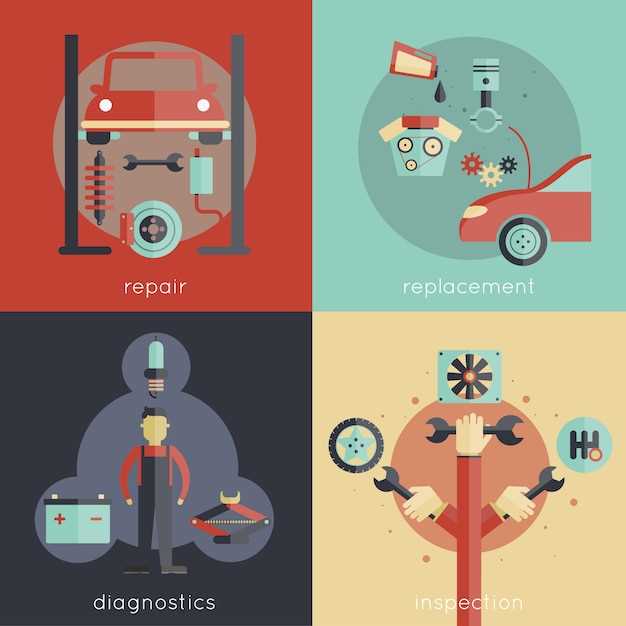
Every car owner knows that a smooth ride is often accompanied by the familiar sounds of an engine running seamlessly. However, when you start hearing strange noises, it can be a source of concern and confusion. Understanding these noises is crucial for proper vehicle maintenance and safety. This article aims to unravel the complexities behind unusual car sounds and assist you in pinpointing their underlying causes.
From a high-pitched squeal to a low rumble, each strange noise can signify different issues within your vehicle. It is essential to differentiate between benign sounds that might indicate normal wear and tear, and those that may herald serious mechanical failures. By recognizing the nature of these noises, drivers can take proactive steps in diagnosing problems before they escalate.
Common sounds such as grinding, clunking, or hissing are not merely annoying; they can provide valuable insights into the condition of your car. This article will delve into the spectrum of noise types, exploring their potential causes and the necessary actions to take. By the end, you will be better equipped to identify what your vehicle is trying to communicate through its unique symphony of strange sounds.
Identifying Common Unusual Noises and Their Implications
When diagnosing car issues, unusual noises can serve as vital clues. Identifying these sounds is essential for troubleshooting potential problems. Below are some common noises, their possible sources, and implications for vehicle health.
Squeaking or Squealing: Often indicative of worn brake pads or a failing serpentine belt. If you hear this noise when braking, it suggests immediate attention is necessary to prevent further damage.
Clunking or Knocking: Typically emanating from the suspension or drivetrain, clunking noises may signal loose or damaged components. This sound warrants prompt investigation to avoid serious mechanical failures.
Grinding: Grinding noises when shifting gears often point to transmission issues. It’s critical to address this sound quickly, as neglecting it can result in costly repairs and potential loss of vehicle functionality.
Hissing: A hissing noise may indicate a coolant leak or an issue with the exhaust system. Ignoring this could lead to overheating or exhaust gas complications, both of which demand immediate remediation.
Pinging or Knocking: This noise, often associated with engine performance, suggests issues with fuel quality or timing. Addressing it early is vital to prevent engine damage or decreased efficiency.
Listening carefully to your vehicle can reveal much about its condition. Addressing unusual noises early through troubleshooting can save time, money, and ensure safety on the road.
Step-by-Step Troubleshooting for Specific Noises

When diagnosing unusual car noise, a systematic approach can help identify the problem accurately. Follow these steps to troubleshoot specific noises effectively.
1. Identify the Type of Noise: Begin by determining the nature of the noise. Common types include squeaks, rattles, clunks, and hissing. Each type can indicate different issues within the vehicle.
2. Pinpoint the Location: Listen carefully to identify where the noise originates from. Is it coming from the front, rear, or one side of the car? This information will narrow down potential sources.
3. Document the Conditions: Note when the noise occurs. Does it happen when accelerating, braking, or turning? Temperature and weather conditions can also influence some issues, so be aware of these factors.
4. Conduct a Visual Inspection: Look under the hood and beneath the car for any visible signs of wear, damage, or loose components. Check for leaks, worn belts, and disconnected hoses that might contribute to the noise.
5. Test Different Scenarios: While in a safe environment, replicate the conditions under which the noise occurs. Try driving at various speeds, making sharp turns, or using the brakes to see if the sound persists or changes.
6. Check Related Components: If a specific noise points to certain parts (like brakes, suspension, or engine), focus on these areas. Inspect brake pads, struts, and engine mounts for any irregularities that could cause disturbances.
7. Consult Technical Resources: Use the car’s manual or online forums to gather information about similar noises reported by other drivers. This can provide insights into common issues associated with your specific make and model.
8. Seek Professional Help: If troubleshooting does not resolve the noise, it may be time to consult a mechanic. Providing them with your findings will assist in diagnosing the problem more efficiently.
By following this structured troubleshooting method, you can effectively narrow down the causes of unusual car noises and address them promptly.
When to Seek Professional Help for Noisy Vehicles

Identifying the source of strange noises coming from your vehicle can be a challenging task. While some sounds can be diagnosed through basic troubleshooting, others may indicate more severe issues. Here are key indicators that it’s time to seek professional assistance:
- Persistent Noises: If the noise continues despite attempts to troubleshoot, it may signal a deeper problem requiring expert diagnosis.
- Strange Sounds During Acceleration: Unusual noises when accelerating, such as grinding or whining, can indicate issues with the transmission or engine components.
- Changes in Sound: If a previously manageable noise has become louder or has changed in character, it may suggest that an underlying problem has worsened.
- Hearing Different Noises: Any new or distinctive sounds that have appeared alongside your regular vehicle noises need evaluation to prevent potential damage.
In particular, be alert for the following types of sounds:
- Squealing: This often points to worn-out brake pads or a loose drive belt.
- Knocking: A knocking sound can indicate issues with internal engine components or suspension.
- Clunking: This noise might reveal problems with the differential or transmission mounts.
Professional mechanics possess the expertise and tools necessary to accurately diagnose and rectify noisy vehicles. Don’t hesitate to consult a specialist if you encounter any of the issues mentioned above. Prompt attention can prevent further damage and ensure your vehicle remains safe to drive.



